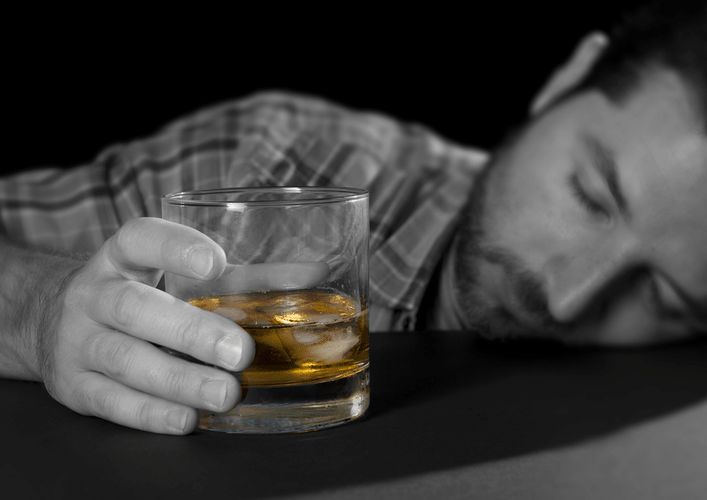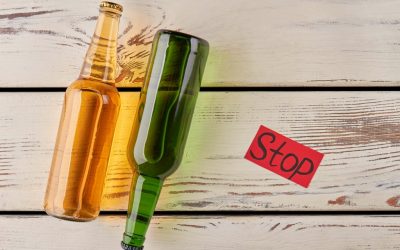Content
The practice is more widely embraced in Europe, where regulators in 2013 approved the medication nalmefene for similarly targeted dosing by people trying to drink less alcohol. Glenn-Milo Santos, a professor at the University of California, San Francisco and the study’s lead author, said patients could discuss the treatment option with their clinicians, even if it was not suitable for all. “Increasing awareness that there are effective medicines that can help people with their alcohol use is important in and of itself,” he said. Regardless of what setting medication is provided, it is more effective when counseling and other services are available to provide patients with a whole-person approach and to support their recovery.
Common side effects of VIVITROL in clinical studies included nausea, sleepiness, headache, dizziness, vomiting, decreased appetite, painful joints, muscle cramps, cold symptoms, trouble sleeping, toothache. VIVITROL and counseling may be able to help with your alcohol dependence. Connect with a licensed therapist for porn addiction and mental health counseling. Get professional help from an online addiction and mental health counselor from BetterHelp. Join the thousands of people that have called a treatment provider for rehab information.
Products & Services
Alcohol has been shown to bind to opiate receptors in the brain. Studies show that blocking opiate receptors decreases cravings for alcohol. An earlier version of this article misstated the dosing advice given to participants in the recent study. They were not told to take naltrexone one hour in advance of drinking; no time limit was given. Alcohol withdrawal syndrome is a set of symptoms that people can have when they stop drinking. The Sinclair Method is the standard treatment protocol for alcohol dependence in Finland, the method is also used in the U.K., but the method has yet to catch on in the United States.
What prescription drug is commonly used to treat alcoholics?
Three medications are approved by the U.S. Food and Drug Administration to treat alcohol use disorder: acamprosate, disulfiram, and naltrexone.
Click «Continue»
below to confirm that you’re a licensed U.S. healthcare professional and wish to proceed. Always consult your healthcare provider to ensure the information displayed on this page applies to your personal circumstances. According to the Centers for Disease Control and Prevention (CDC), more than 140,000 people die from excessive alcohol consumption each year. With this in mind, it highlights why it is important to focus on repurposing existing medications to treat the disorder and developing new ones. Suppose scientists continue the research on spironolactone and eventually submit it for regulatory approval to treat alcohol use disorder.
Why VIVITROL®?
The prescribing healthcare professional can answer questions and provide guidance about the use of acamprosate for alcohol use disorder. Your health care provider or mental health provider will ask additional questions based on your responses, symptoms and needs. Preparing and anticipating questions will help you make the most of your appointment time. Residential treatment programs typically include licensed alcohol and drug counselors, social workers, nurses, doctors, and others with expertise and experience in treating alcohol use disorder. That means that it lasts for a long time, or it causes problems again and again. The main treatment for alcoholism is to stop drinking alcohol.

“Medications are very important during alcohol withdrawal, the period called cold turkey. While undergoing withdrawal, it is important to stay hydrated, as dehydration can make withdrawal symptoms worse. Supplementing with vitamins and minerals is also important because long-term alcohol consumption and dependence can deplete these elements, particularly the B vitamins.
WHO Classifies Compulsive Sexual Behavior as a Mental Health Disorder
This leads to nausea, hypotension, and flushing if a person drinks alcohol while taking disulfiram. Some may view binge-drinking as harmless because the habit is widespread and a low percentage of binge drinkers are dependent on alcohol, according to experts. A recent study suggested the use of a decades-old medicine taken before imbibing could reduce the amount of alcohol consumed. Be prepared to discuss any problems that alcohol may be causing. You may want to take a family member or friend along, if possible. By Buddy T
Buddy T is a writer and founding member of the Online Al-Anon Outreach Committee with decades of experience writing about alcoholism.
- Making the decision to quit drinking can help alleviate these symptoms by improving mood and lessening the physical side effects.
- One of these studies compared the combination with either drug alone and with placebo.
- It may also be taken once every other day, once every third day, or once every day except Sunday (or other designated day of the week).
- Medicines are usually used with talk therapy and support groups to treat alcohol use disorder.
Understanding the available treatment options—from behavioral therapies and medications to mutual-support groups—is the first step. The important thing is to remain engaged in whatever method you choose. Ideally, health professionals would be able to identify which AUD treatment is most effective for each person. NIAAA and other organizations are conducting research to identify genes and other factors that can predict how well someone will respond to a particular treatment.
Building on this progress, scientists continue to work on new medications and discover new ways to improve the effectiveness, accessibility, quality, and cost-effectiveness of treatment for people who have alcohol use disorders. Depression and anxiety often go hand in hand with heavy drinking. Studies show that people who are alcohol dependent are two to three times as likely to suffer from major depression or anxiety over their lifetime.
- Naltrexone blocks these effects, reducing euphoria and cravings.20 Naltrexone is available in oral and injectable long-acting formulations.
- Treatment for alcohol use disorder may include talk therapy (also called “psychotherapy”), support groups, medicines, or a combination of treatments.
- Many alcohol treatment centers administer naltrexone during the early stages of recovery.
- Some medicines require that you stop drinking completely, while some drugs help you reduce cravings for alcohol.
Acamprosate (Campral) eases withdrawal symptoms — such as insomnia, anxiety, restlessness, and feeling blue — that can last for months after you stop drinking. Based on clinical experience, many health providers believe that support from sober house friends and family members is important in overcoming alcohol problems. But friends and family may feel unsure about how best to provide the support needed. The groups for family and friends listed below may be a good starting point.
Making the decision to quit drinking can help alleviate these symptoms by improving mood and lessening the physical side effects. • Acamprosate can be used after alcohol abstinence to alleviate anxiety, restlessness, dysphoria and insomnia as your brain adjusts to life without drinking. A variety of factors can play into people’s drinking patterns, including genetics, depression, anxiety and stress.
